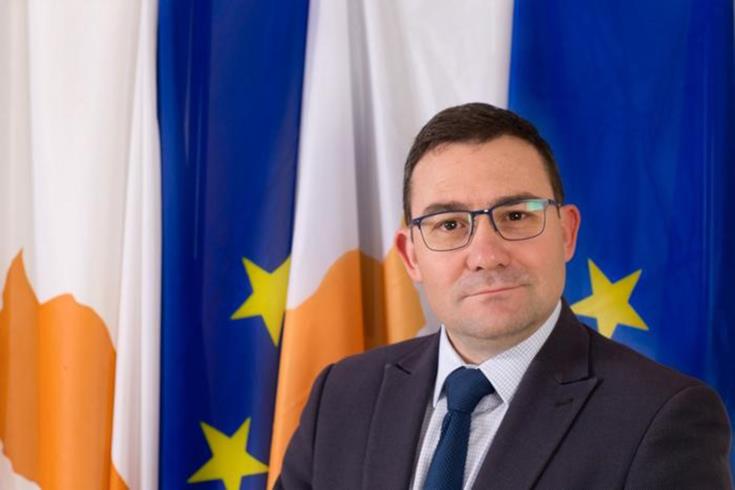Today's memorial gives us the opportunity to count our historical responsibilities, so that we never stop fighting for our rights, said the Secretary of the Council of Ministers Theodosis Tsiolas, in his speech at an event for the historic battle of the Caves on Sunday 8 December 2019, in the church of Agios Antonios in Spilia.
"Together we must intensify the struggle to find a just, sustainable and workable solution to our national problem without occupying armies, guarantees and other foreign dependencies and make it a modern European country where all Cypriots enjoy the benefits offered by the European "Union to its citizens by improving their daily lives", he said according to a statement of the Presidency.
He also said that the Government is working and looking forward to the resumption of negotiations to find the desired solution.
"It goes without saying, of course, that in order for the negotiations to resume, Turkey must end its illegal actions in the EEZ of the Republic of Cyprus and / or any threats to settle in Famagusta," he said.
"Despite the difficulties and problems, we remain committed to our goals. We claim our rights. And we are adamant about that, "he added.
He said that the road is shown to us by the heroes and witnesses of our struggles, those brilliant figures who became bright examples of morality, selfless offering, heroism and self-sacrifice.
Referring to the Battle of the Caves, he said that in the autumn of 1955, the intense action of EOKA had upset the British Administration of Cyprus and the government of London itself and the blows of the Cypriot Fighters were now uninterrupted.
As he said, from the captivity of the Caves, Digenis directed the struggle of EOKA until December 11, 1955, when he together with Grigoris Afxentiou and a group of 12 guerrillas were betrayed and surrounded by hundreds of English soldiers.
The betrayal that morning, he said, resulted in the well-known historical "Battle of the Caves", which highlighted the military intelligence, bravery, militancy, courage and bravery of the Knife Cross Eagle, Grigoris Afxentiou.
He added that intense mobility was observed in the village when trucks with British soldiers arrived. The Chief ordered Afxentiou to make a reconnaissance. He returned and certified that the enemy force was moving from the Caves to their positions. The ridge on the north side of the village was covered by dense fog, which later greatly favored the men of EOKA.
He added that Afxentiou was promoted to a surveillance role together with a small group and was ordered to attack the enemy as soon as he saw him approaching, in order to notify in time the main force that had developed under Digenis on the ridge. The prevailing fog was dense and the EOKA men were hiding in the dense forest.
"Around three in the afternoon, the first shots were heard from the side of Afxenti, a sign that the opponent was very close. He dropped two grenades and continued firing, attempting to unhook. The British had divided their forces, numbering 600 men, into two divisions. They were advanced, performing a circular movement towards the Caves, from where their main volume operated. They believed that they would be able to trap the Cypriot fighters, forcing them to surrender. Afxentiou, acting like lightning, collapsed with the others and they fled in the direction of Kakopetria. The British detachments, coming from the opposite direction, had not realized that there was no one between them. Recognition was impossible and the detachment, which was moving towards Spilia, opened fire. The other answered and so the self-destruction of the British was inevitable. When they realized what had happened, it was too late. "The dead soldiers reached 15 and the wounded 37," he continued.
He said that a significant loss for EOKA was the arrest of Renos Kyriakidis, leader of the Pitsilias guerrilla groups. Cut off inside the Caves and trying to escape, he was wounded by British fire and arrested.
He also referred to a tragic incident that took place on June 20, 1958, when a bomb blast made by four fighters at the house of fighter Andreas Patsalidis in the neighboring village of Kourdali killed him and his competitors Aleko Konstantinos, Costas Anaxagoras and Panagiotis.
